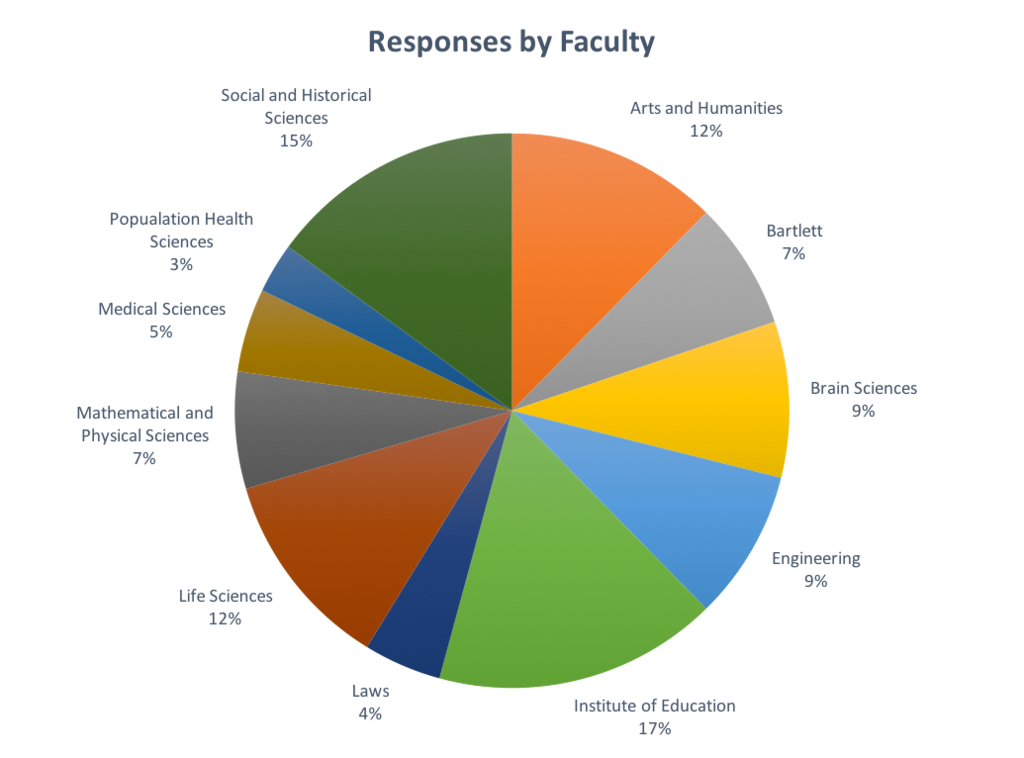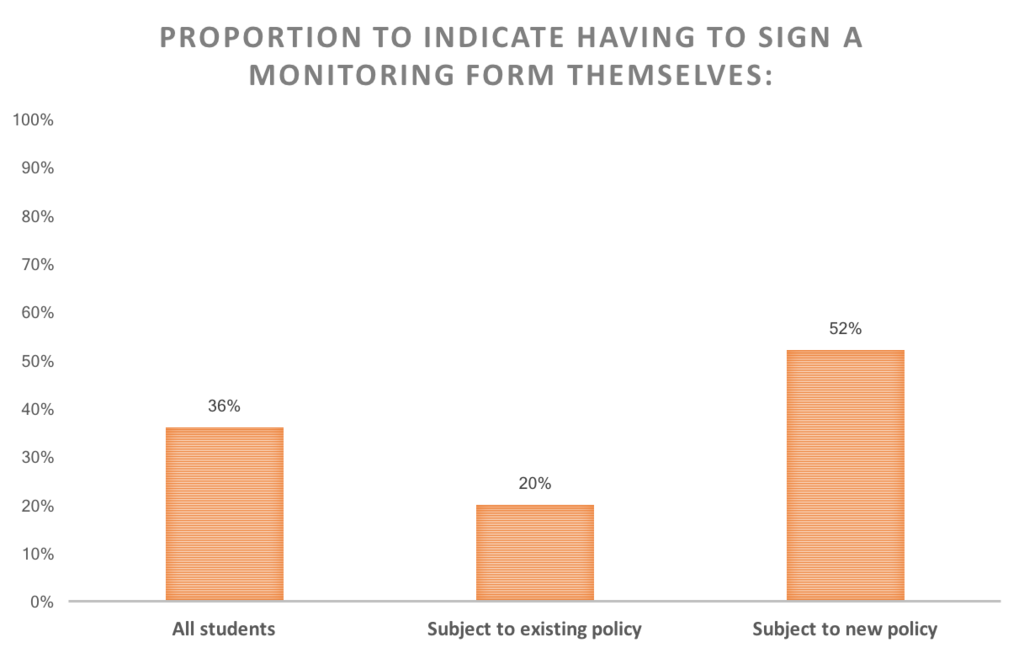Over the past two weeks, hundreds of international students from across the university have responded to our survey related to UCL's new visa compliance regulations. These regulations will soon mean that all students on Tier 4 visas will need to check in their departments physically at least one every month, in addition to their ordinary study arrangements; this is totally unnecessary, and goes far beyond what is required by the Home Office.
Both the students' union and the lecturers' union, UCU, have passed policy to oppose these regulations; you can read our demands and our statement of principles here. Our Facebook campaign page can be accessed here. If you wish to get more involved in the campaign, feel free to message the Facebook page or email Mark at [email protected].
Our survey spanned the institution's 11 faculties:

It therefore cannot be argued, as it has been thus far, that the grievances represent simply a small subgroup of students at the Institute of Education, which has now accepted that its monitoring systems were excessive and has set about introducing a working group to revise it.
Survey Results
We compared students who have indicated that they reported a recent change in the regularity with which they are now required to sign in with their departments (that is, whether their department has yet introduced the new policies) with those who have not. The results are, quite simply, staggeringly worrying.
We asked: 'Do you feel discriminated against as an international student at UCL?'

Those under the new policy have indicated a dramatic increase in feeling discriminated against at the university, but it is also worryingly clear that existing procedures - which will inevitably vary drastically across the school - have a big role to play in this.
We asked whether students had to sign the engagement monitoring forms themselves. This was the outcome:

Even under the new system, students are not necessarily required to fill in the forms themselves; yet departments appear so concerned about following the regulations that some have instructed students to be in charge of the university's own visa compliance enforcement. This is totally unnecessary and a source of stress for a great many students.
We asked whether students feel that engagement monitoring has affected their studies:

There is clearly a dramatic increase under the new policy in those who feel the engagement monitoring system is negatively affecting their studies. While the former policy may have felt discriminatory, this at the very least indicates that that fewer students felt that it was affecting their academic work.
Meanwhile very few feel it has a positive impact, which flies against the claim that check-ins mean increased academic support through meetings with supervisors.
Finally, we asked whether students would be likely to recommend UCL as a place for study on the basis of their experience as an international student. The following proportions indicated that they would recommend UCL (whether strongly or less strongly):

Even despite a widespread sentiment of felt discrimination, a substantial majority of students under the previous system are nevertheless still likely to recommend the university as a place for study. This falls dramatically for students under the new regulations, and suggests that they pose a severe reputational risk for the university if it presses ahead and rolls out these new policies for all students in advance of the new academic year, as intended.
Conclusion
In his response to our open letter, the Provost claimed that UCL practice was in line with the sector. In particular he cited King’s College London as using similar regulations. However, the UCU got in contact with the KCL branch who said that this was not the case. Firstly, non-physical (i.e. Skype) check ins are still accepted at KCL, and secondly the university has, following pressure from the staff and student body, accepted the principle of non-discrimination – that all students should follow the same regulation regardless of whether or not they are on a Tier 4 visa.
Additionally, and during the audit of its compliance procedures, the Home Office specifically stated in its guidance to the immigration department the following:
- "Our attendance monitoring policy did not intend and does not require sponsors to create separate monitoring systems for international students;
- "You should not need to introduce separate contact points outside of timetabled lectures, seminars, tutorials etc to be able to monitor student attendance effectively;
- "We deliberately do not prescribe a particular attendance monitoring or record-keeping system due to the number and diverse range of education providers licensed under Tier 4."
In other words, all engagement monitoring of international students should not feel discriminatory in practice as systems should affect all students, and be academically consistent (not requiring, in other words, additional check-in points beyond normal academic work).
There is no justification for the current monitoring system or for the widespread discriminatory repercussions it is anticipated to have students once it is rolled out across the university. We call on the university to pause these new regulations immediately, and to revise them in collaboration with the students' union and the camps trade unions (whose members are responsible for implementing these procedures).
Until this happens, we will make every effort possible to alert prospective international students of this information, and of the depth the discrimination felt here.
Mark Crawford, Postgraduate Students' Officer, on behalf of the UCL: Stop Policing International Students campaign.